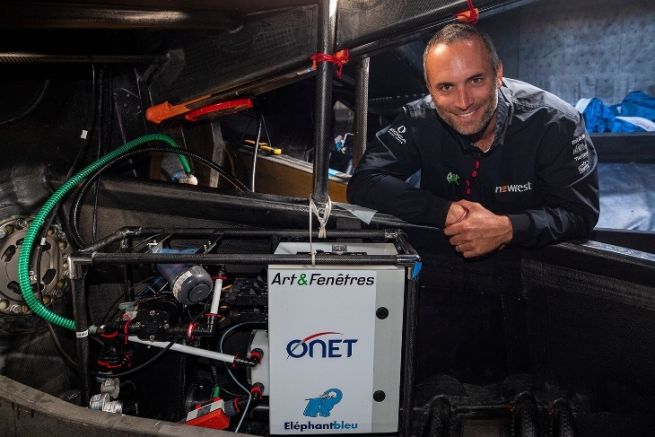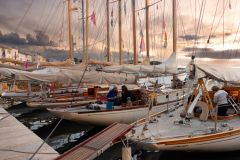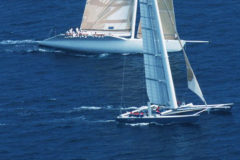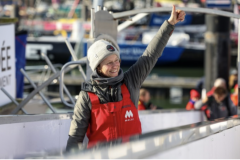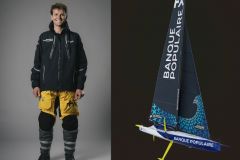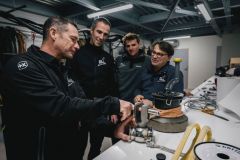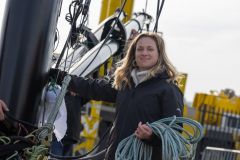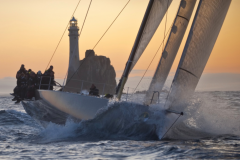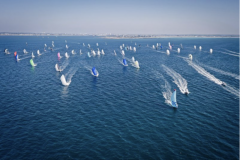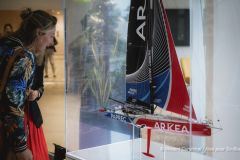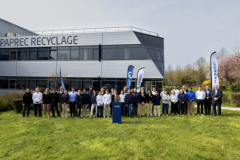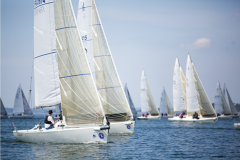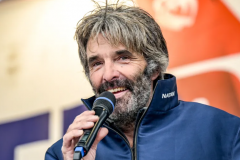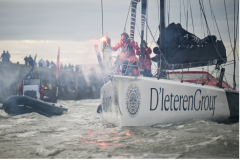Analyzing the health of the oceans to study global warming
To analyze the health of the oceans, Blue Elephant has developed an oceanographic sensor to analyze the health of the oceans. During the containment period, the technical team added a new module to collect microplastics from the surface of the oceans. In this way, the skipper will be able, depending on his race course - the Vendée - Arctic - Les Sables-d'Olonne, which is currently being raced, then the Vendée Globe in November 2020 - to study little explored areas.
For the operation to be viable, the skipper will have to change the sensor filters twice every 24 hours, throughout his race.
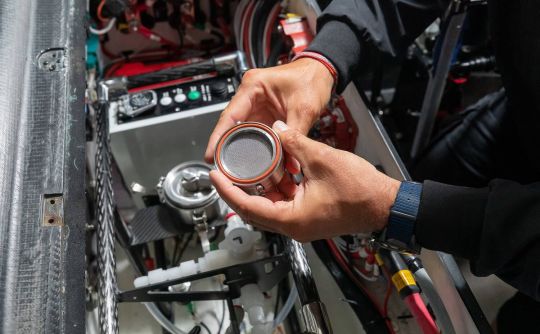
In addition to the collection of plastic - which will be done by taking samples that will be sent out at the arrival of each deckchair - the sensor also measures the CO2 level, temperature and salinity of the oceans. It operates continuously and records the data, which is regularly transmitted to the scientific community.
This data - which complements that provided by satellites and floats - is used to enrich the dataset to establish scenarios on global warming and ocean pollution.
"For a long time I thought the open sea was a clean place, free of plastic pollution. During the last Vendée Globe, I spent 38 days in the Southern Ocean and I didn't see any waste. But it was an illusion... Back ashore, I read up on microplastics and realised just how massive this pollution is. The situation is dramatic, microplastics are present in all the seas of the world. I wanted to make my small contribution to change things." explains Fabrice Amedeo.
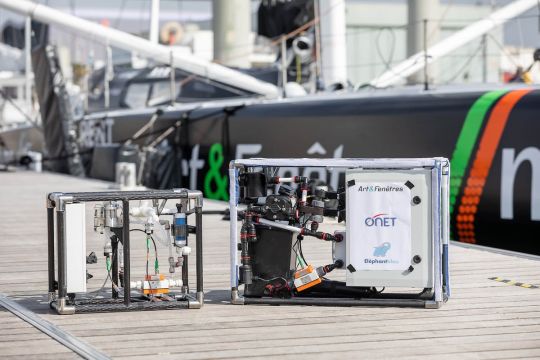
Limiting the environmental footprint of the boat
In addition to his involvement in the study of the oceans, the skipper of IMOCA Newrest - Art & Fenêtres wants to reduce the environmental footprint of his boat. Thus, he has equipped his sailboat with solar panels and a wind turbine, which will considerably reduce the IMOCA's diesel consumption.
